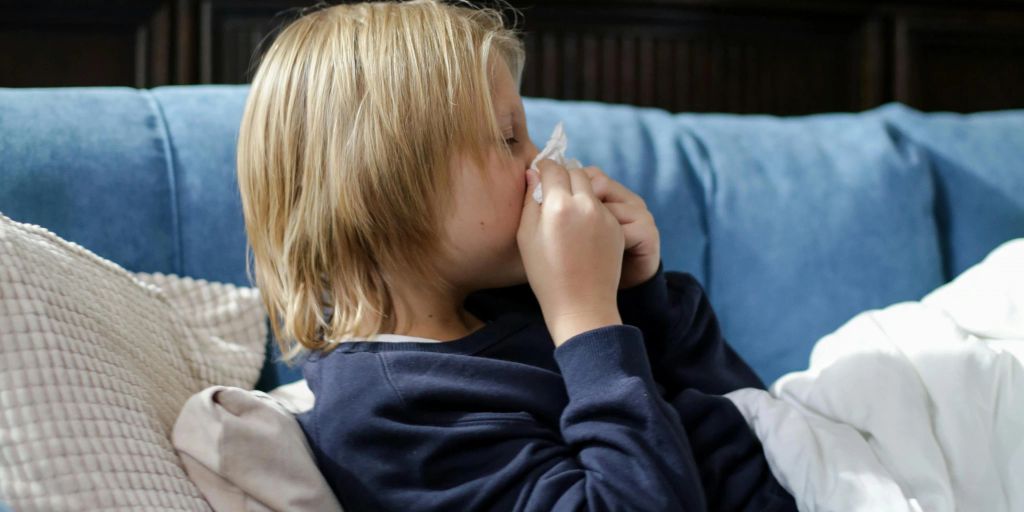While many adults have a persistent cough this winter, children's coughs are more persistent than in other years.
The basics in a nutshell
- Because children have lower immunity, they get sick more quickly than adults.
- This year, the infection is spreading among children one after another over short periods.
- The cough is also more constant.
Cough, runny nose, fever and even pneumonia. Winter after winter, a large number of children in particular get sick. Fabia N.* from Freiburg is also experiencing this at the moment. Her daughters (5 and 2 years old) had a high temperature for a week. They just about fell asleep. “I barely recognized her,” she told Nau.ch. “They have never had this disease before.”
But calling the doctor calmed her down. “There are a lot of kids with flu in bed at the moment – and it takes time to treat that.”
Opinion poll
Have you had the flu this winter?
No, fortunately not yet.
There are reasons why children get influenza more quickly than adults: “Basically, children are particularly vulnerable to influenza because they have lower immunity than in previous years and have close contact with each other in community facilities such as schools and day care centers.” Explains Didier Blache, spokesperson for the Berner Inselspital Group upon request.
He couldn't say that injuries this winter would be completely different from those in other years. But, says Blashy, “with the current spread of different viruses, infection one after another over short periods is common.” In other words: children keep getting sick over and over again.
Persistent cough in adults, and persistent cough in children
While many adults are suffering from a persistent cough this winter, it is the persistent cough that is affecting children. This was noticed by pharmacist Bianca Schmoke and the team of Dr. Anders Pharmacy in Zurich Stadelhofen, “The cough in young children is more persistent this year.”
Anecdotally from parents, their children's coughing spells are more difficult to control this season, Schmoke says. This is difficult, but not dangerous: “Cough is annoying and seriously disrupts the sleep of parents and siblings, but it can last for several weeks or months without posing a real danger.”
On average, cold symptoms last for at least five to seven days. “It feels like two weeks to worried relatives,” says Bianca Schmoke.
Many children with respiratory infections are hospitalized
The Zurich Children's Hospital team sees only the tip of the iceberg of sick children.
There, chief physician Christoph Berger points out that this year's flu wave is no different from last winter in terms of the number of children hospitalized and the severity of their illness. “But we see a lot of kids hospitalized for respiratory infections; influenza is a small percentage of them,” Berger says.
Hospital spokesman Didier Blache said that the hospital recorded “a very large number of cases of respiratory syncytial disease” in early winter. Unlike the previous winter, this time many older children – i.e. older than one year – were also affected. The number of cases has now fallen sharply again.
“In addition, we continue to see many children hospitalized with influenza or bacterial pneumonia caused by influenza, especially pneumococcus.” However, the coronavirus did not play a significant role among children at any stage this winter.

“Typical entrepreneur. Lifelong beer expert. Hipster-friendly internet buff. Analyst. Social media enthusiast.”







More Stories
A boy finds a rare Lego octopus from a container that fell into the sea in 1997
SRF News Contest of the Week – News
Temperature and humidity: Kachelman explains the phenomenon